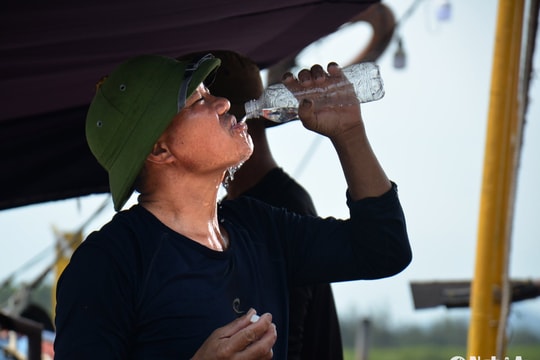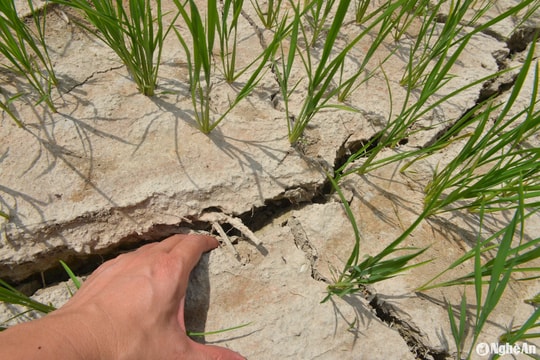Nghe An farmers seek flexible ways to respond when the heat wave lasts for a long time.
According to forecasts, the current peak heat wave will last until mid-July 2024. Nghe An farmers must find ways to cope…
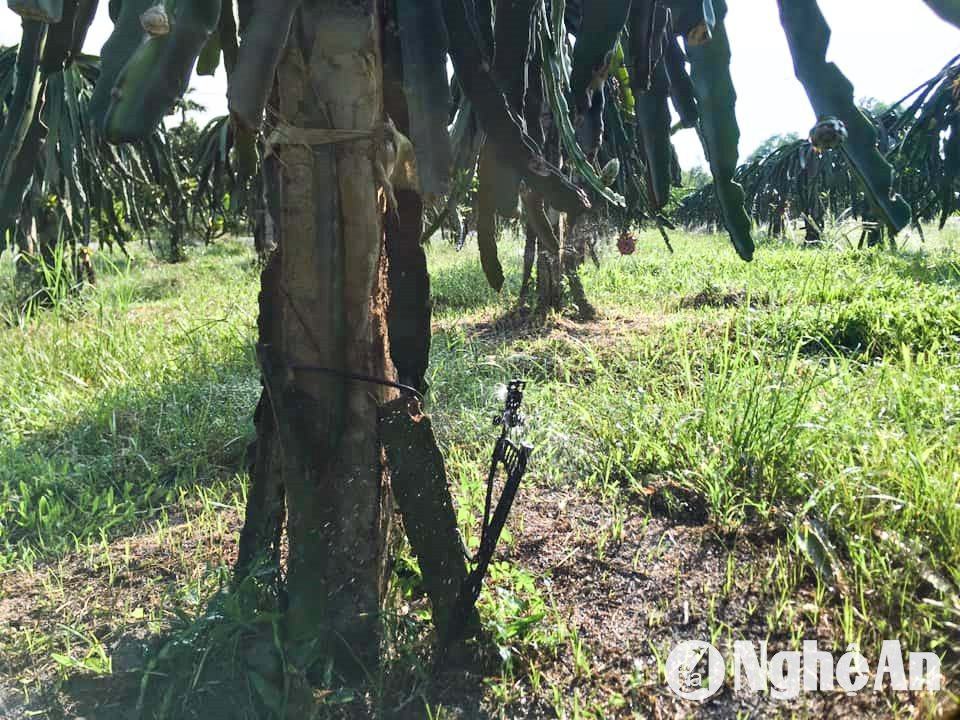
Mrs. Nguyen Thi Hanh’s farm (Quynh Tam commune, Quynh Luu district) grows nearly 5 hectares of fruit trees including dragon fruit, Dien grapefruit, Taiwanese pear guava, etc. On hot days, the demand is high, the fruits sell well and have good prices. However, the harsh sunlight combined with the hot Lao wind makes it difficult to take care of the fruit trees.
“During the fruit-bearing and fruit-nourishing stage, it is necessary to ensure adequate water and humidity. In extremely hot weather, watering time is 2-3 times longer than before. The water source has a drilled well, automatically pumped into the drip irrigation system, sprinkler irrigation, just need to set the watering time and turn it off through the system,” said Ms. Hanh.
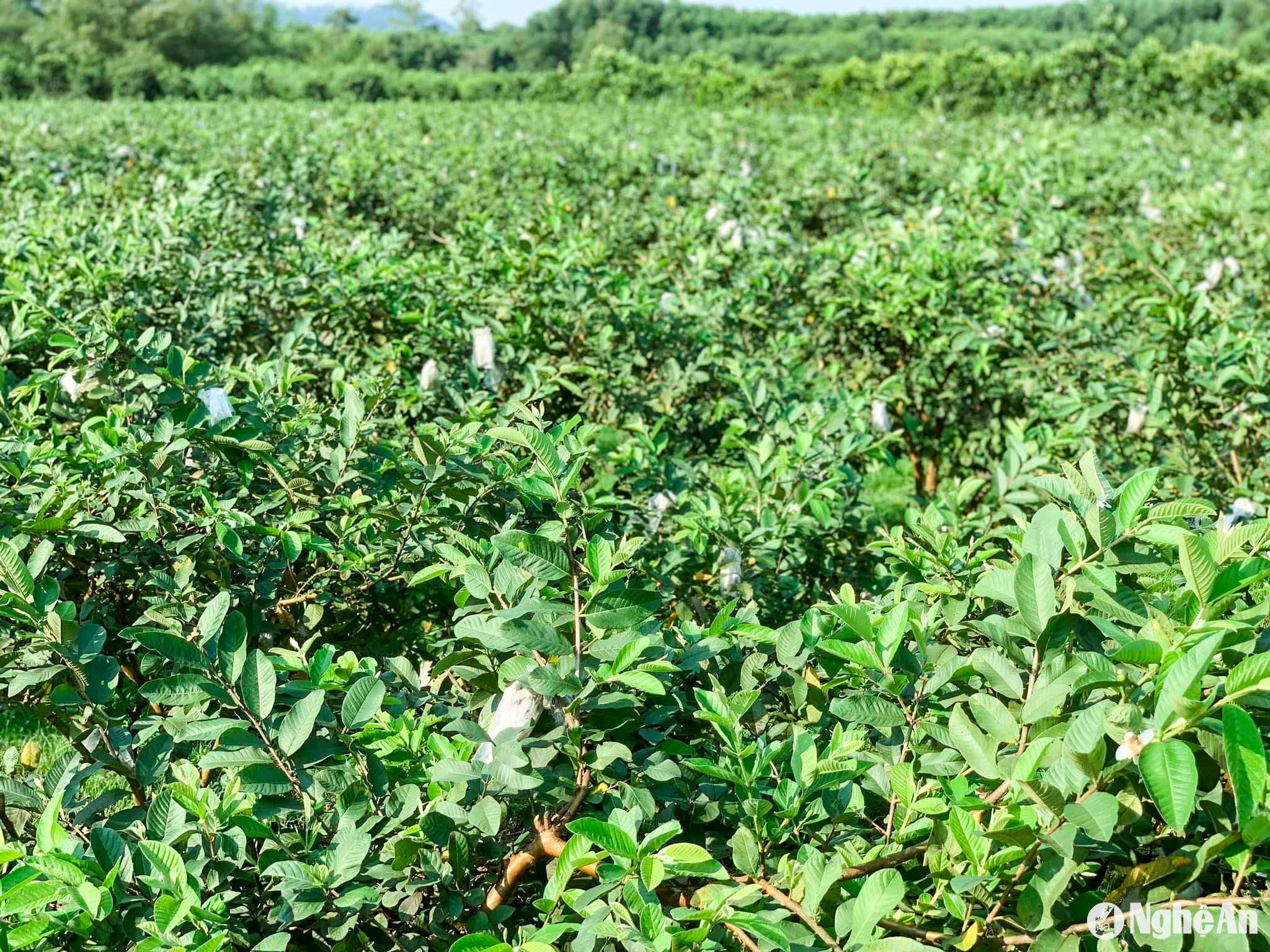
The more dry the guava and dragon fruit are, the sweeter they are, but the fruit is easily tanned, darkened and unsightly. Therefore, it is necessary to cover them with 2-3 layers of plastic film, and operate an underground drip irrigation system to keep the plants moist, provide water to the fruit, and avoid water loss. In addition, her family also uses water hyacinth, along with other grasses and silt at the base of the tree to keep the soil moist, helping the tree grow well.
In previous years, at this time, Ms. Dam Thi Hang in Thanh Duc, Thanh Chuong district hired workers to cut grass for 6 hectares of orange trees for easy care. However, this year, following the weather, knowing that in July, the area would be extremely hot, with temperatures reaching 40 degrees Celsius at times, she decided to keep the grass in the orange farm. Keeping the grass is to create a layer of cover for the soil, helping to retain moisture and cool the soil. At the same time, she trimmed diseased branches and created an airy canopy for the trees.
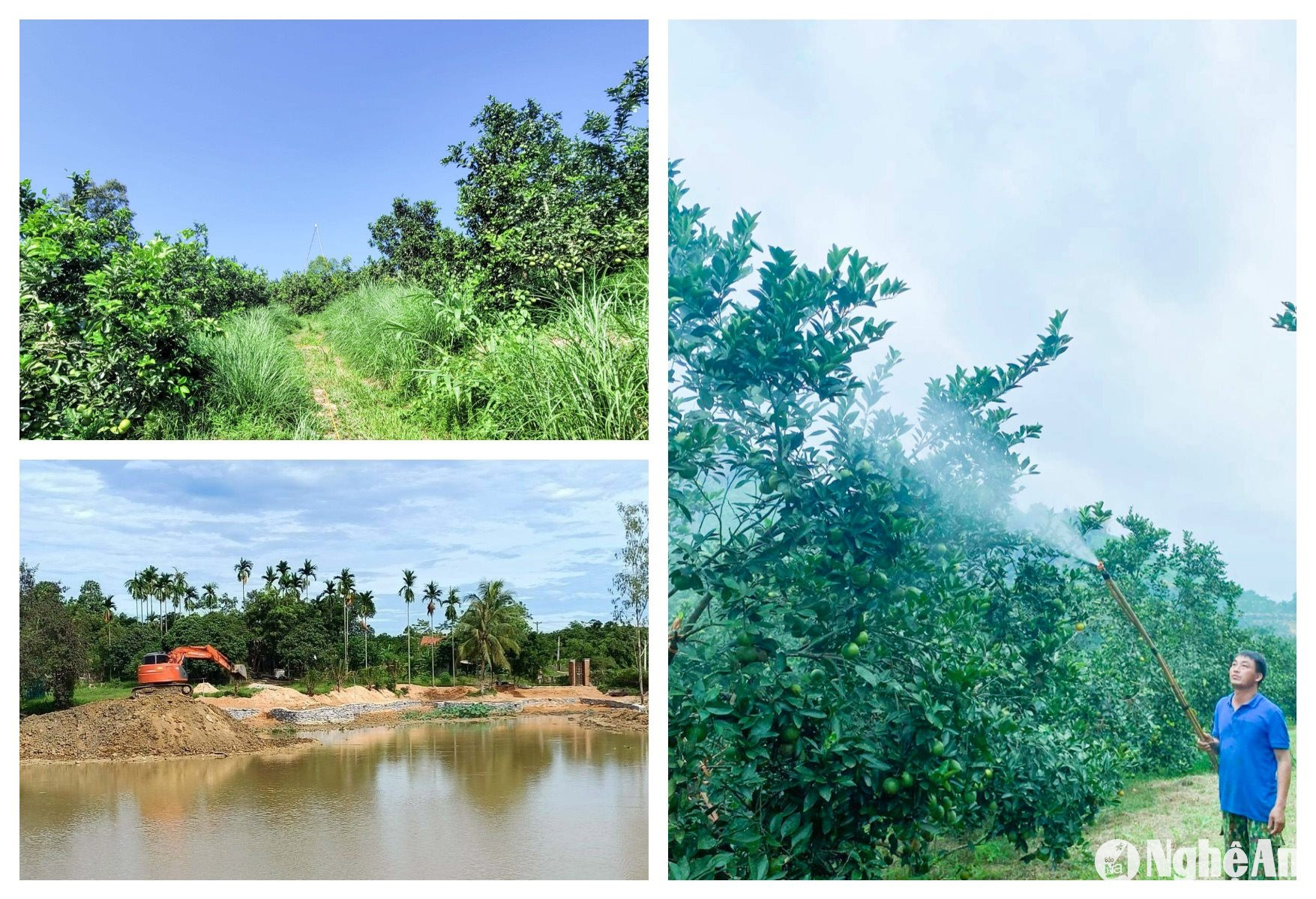
Oranges are mainly grown on sloping hills, which drain quickly, evaporate easily and have difficulty retaining moisture. However, thanks to organic farming, the use of biological products, the limitation of inorganic fertilizers and chemicals, and the loose, airy, humus-rich soil structure, the amount of irrigation water will be absorbed a lot, not wasting water on the surface and evaporating. Thanks to proper care, the family's 6 hectares of oranges are now bearing fruit, accumulating nutrients to nourish the fruit.
These days, high temperatures combined with southwest winds make production in greenhouses and net houses encounter many difficulties. In many regions, from May to July, greenhouses are almost empty due to high temperatures, and no plants can be grown. However, most greenhouses still maintain production with crops such as: melons, cucumbers, etc.
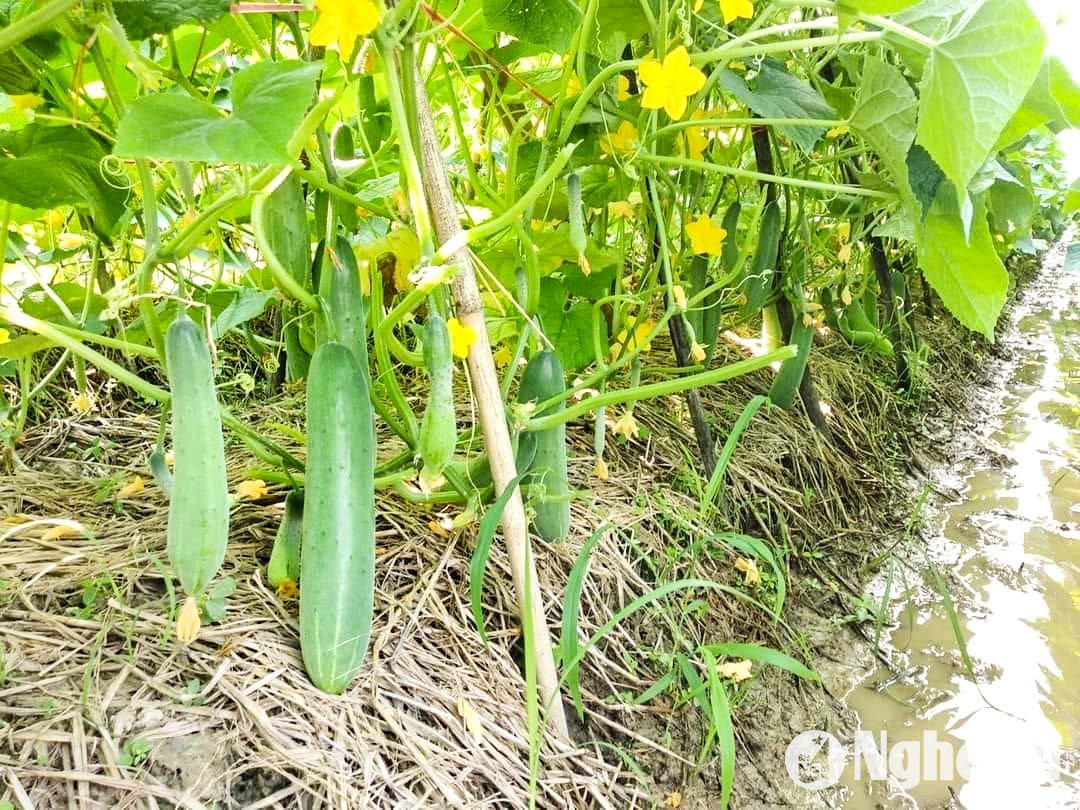
For melon plants to grow well and achieve productivity, in addition to increasing watering and adding nutrients, watering methods are also very important.
“The greenhouse is made of steel and plastic, so the temperature inside is always 4-5 degrees Celsius higher than the outside temperature. Therefore, sprinkler irrigation should only be operated at night, while during the day, drip irrigation and ventilation systems should be turned on. At the same time, invest in spreading capillary carpets inside the greenhouse to maintain humidity,” said Mr. Nguyen Phung Khoi (Trung Son commune, Do Luong district).
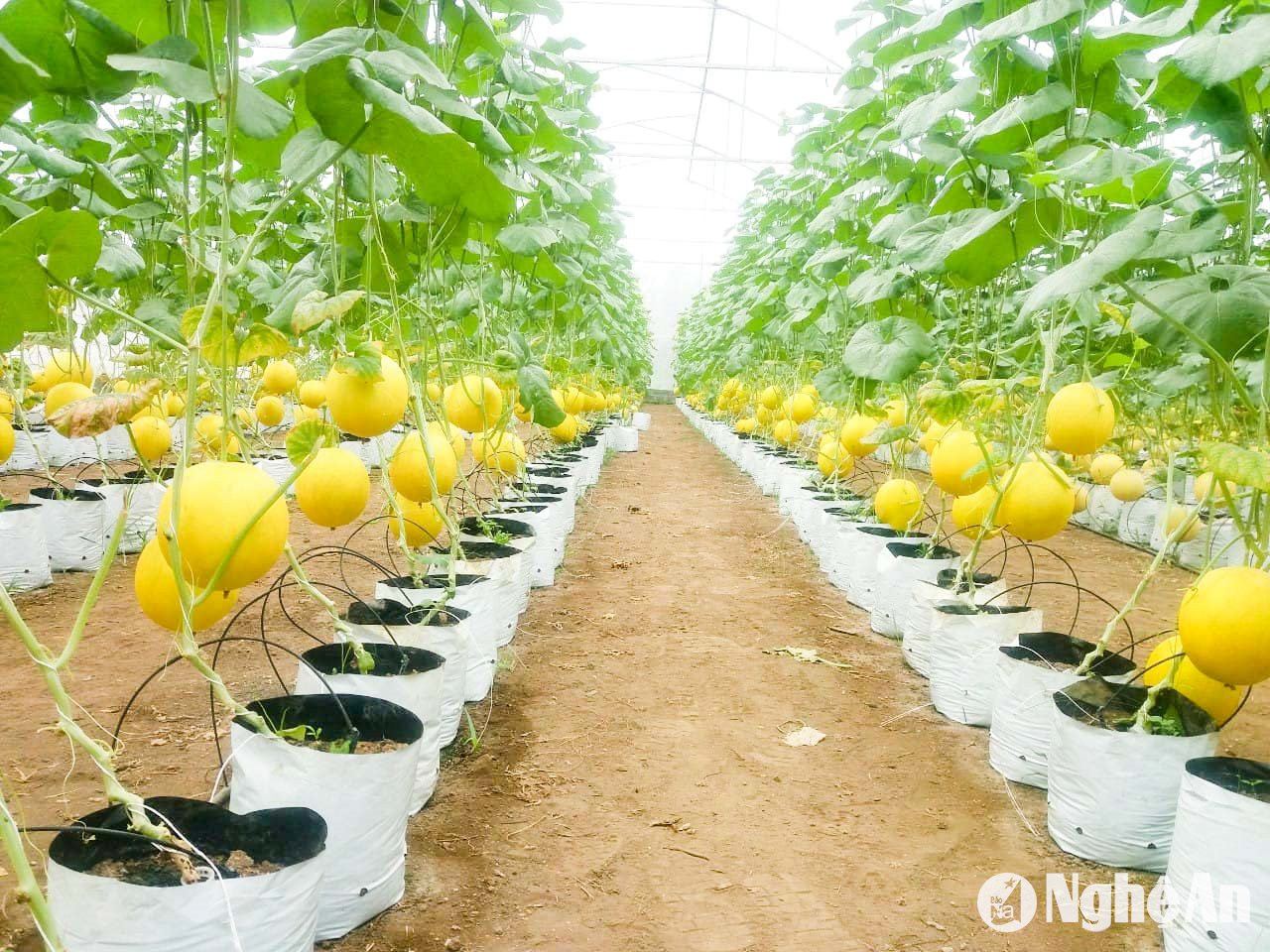
Meanwhile, many households in Hung Tan commune (Hung Nguyen), Kim Lien commune (Nam Dan) apply measures to store water in furrows and trim leaves to prevent drought for cucumber plants.
According to Ms. Nguyen Thi Minh, if the cucumber plants are not given enough water at this time, the fruit will shrivel up, taste bitter, and be difficult to sell, not selling for a good price.
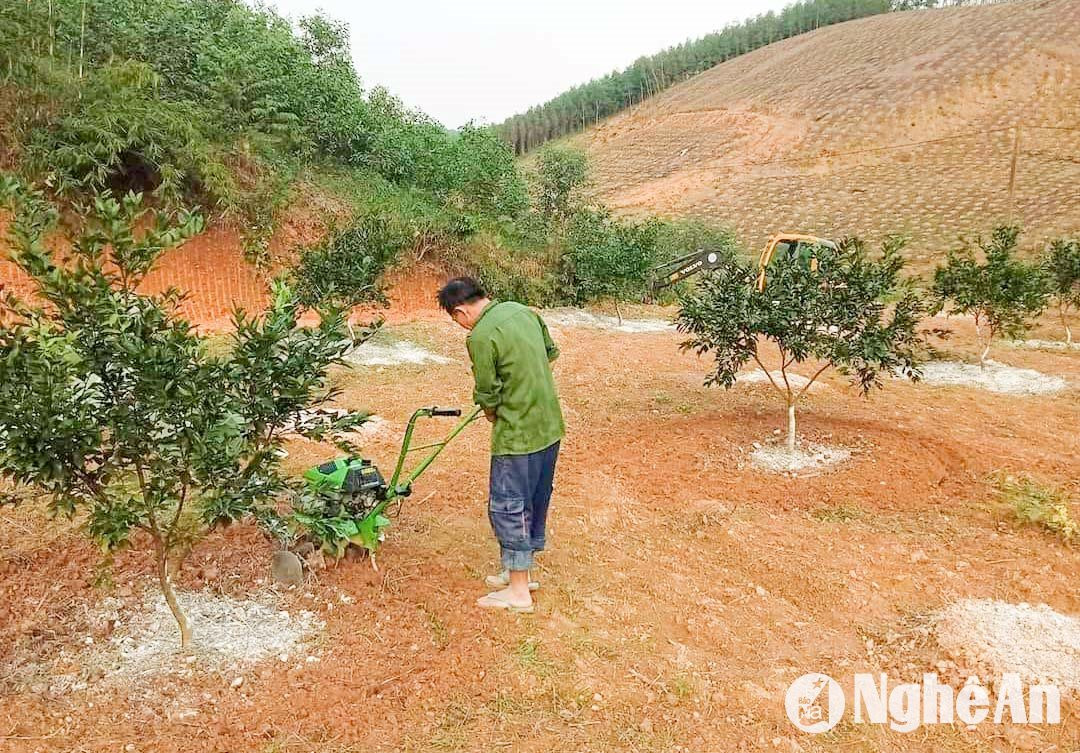
Taking advantage of the rainy days at the end of June, she dredged deep trenches to retain water between the rows to provide enough water for the plants. At the same time, she mobilized workers to prune all old leaves and leaves near the base to reduce water evaporation through the leaves and help the plants lose less water, create ventilation, and increase the photosynthetic ability of the plants from before.
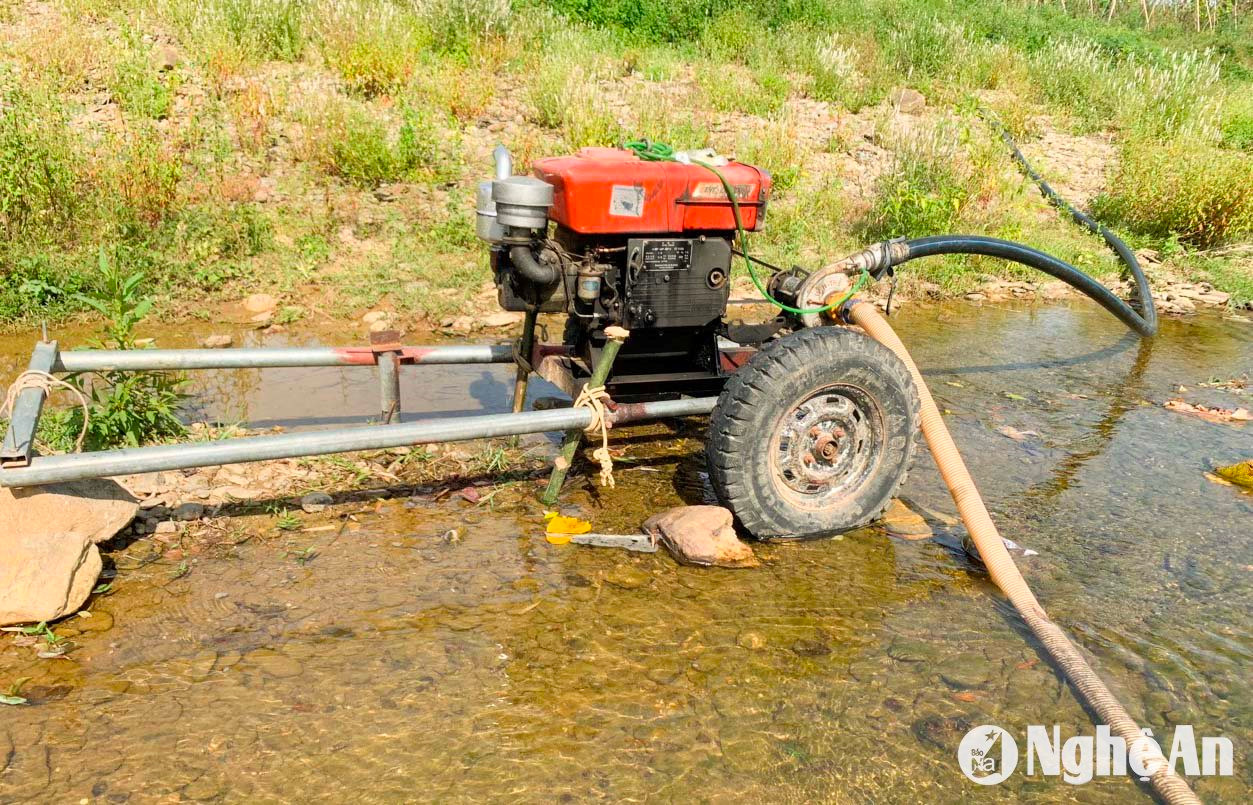
According to the Center for Hydro-Meteorological Forecasting, from now until the end of July, Nghe An will experience severe heat waves, with temperatures reaching 40-42 degrees Celsius and no rain. Therefore, the drought situation will become more serious.
In order to respond promptly, prevent and combat drought effectively, and minimize damage caused by drought to crops, farmers need to implement scientific and economical irrigation measures to ensure water sources for use in the dry season; pay attention to implementing technical measures to care for crops in the dry season: keep the soil moist; fertilize; prune branches; prevent and control pests and diseases...
In addition, it is necessary to cover the soil to retain moisture to help plants overcome the dry season. Covering the soil with green vegetation, straw, dry leaves, etc. not only helps to limit the rapid evaporation of water in the soil under the sunlight but also helps rainwater and irrigation water to penetrate deep into the soil.

.jpg)

